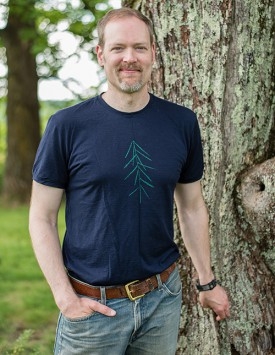Dr. Joshua Rady
PHD FELLOW GRADUATE | Global Change Center
VT Graduate November 2022 • Forest Resources and Environmental Conservation
Advisor: Dr. Quinn Thomas
jmrady@vt.edu

Joshua Rady is interested in improving our understanding of how forests work and incorporating that knowledge into computer models that will help decision makers respond to environmental issues at regional to global scales. Rady graduated from his PhD program in November of 2022 and is currently a Postdoc at Woodwell Climate Research Center with Dr. Brendon Rogers as part of the Permafrost Pathways project. Joshua will be studying how fire will be changing in the arctic with climate change.
Forests are prime movers in modulating climate, water quality, and species diversity. While forests cover a fraction of their historic range we still maintain significant areas of forest for its economic, aesthetic, and recreational values. Joshua is interested in how current or potential forest management practices could be used to mitigate anthropogenic climate change, species loss, and diminishing air and water quality.
Joshua received his bachelor’s degree in Biology from Bowdoin College in Brunswick Maine. After working in industry as an analytical chemist and forming a wildlife oriented software company Joshua spent several years doing molecular biology research at the University of Virginia. Through part time graduate work he developed a strong interest in environmental science, ecological modeling, and forest and systems ecology.
Joshua joined the lab of R. Quinn Thomas in the department of Forest Resources and Environmental Conservation to study the interactions between forests and a changing climate. In his graduate work he worked to develop improved forest models that help us understand and respond to climate, natural resource, and land use challenges.
Joshua Rady joined the Interfaces of Global Change program in order to encounter alternate perspectives and develop a more holistic understanding of environmental challenges. Addressing environmental change will require a systems approach that leverages multiple disciplines. Human economic and social systems drive environmental degradation. They must be understood in concert with ecological systems in order to produce actionable science that will be useful to policy and decision makers.
Last updated November 2022.




